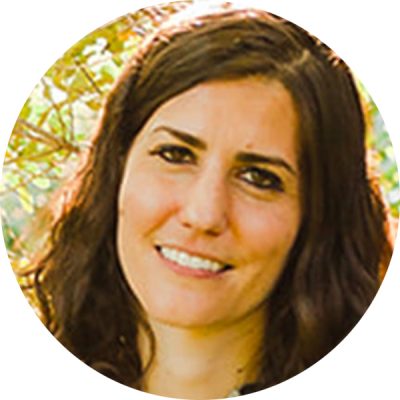
Sarah Emily Maguire
While working in Christopher Potter’s lab in the Department of Neuroscience, I discovered a novel regulatory mechanism that controls the expression of chemosensory genes, “odorant receptors,” on the mosquito’s nose. Odorant receptor regulation is an unexplored but important topic in vector biology because the precise control of this gene family influences a mosquito’s ability to locate and bite humans.
Questions & Answers
Why did you choose Johns Hopkins for your work?
Dr. Potter is widely known as an excellent mentor and behavioral geneticist. When I learned back in 2016 that he developed a set of genetic tools to study olfaction in the malaria mosquito, I couldn’t resist applying to his lab.
What does receiving this award mean to you personally and professionally? Do you have any connection with the particular award you received?
My research would not be possible without the success of Daniel Nathans (the name of my award), who in 1978 received the Nobel Prize for demonstrating the utility of restriction enzymes in genetic experiments. To study the basic biology of olfaction in mosquitoes, I have used restriction enzymes to create several “transgenic” mosquito lines, or animal lineages that contain foreign pieces of DNA that can manipulate olfactory neuron physiology, trace the anatomy of olfactory circuits, and so forth.
What contributed to your project’s success?
My project would not be possible without the hard work and special insight of my two very brilliant collaborators: Ali Afify (postdoctoral fellow with Dr. Potter and recipient of the 2020 Alfred Blalock award), and Loyal Goff, assistant professor of genetic medicine.
What thoughts do you have about Young Investigators’ Day itself, as a celebration of the roles students and fellows play in research at Johns Hopkins?
What a great tradition Hopkins has established! Students and fellows are the engines powering research projects, and it’s great that Hopkins has created a venue to recognize and encourage their achievements.
What has been your best/most memorable experience while at Johns Hopkins?
In 2019, I was awarded a research fellowship from the Johns Hopkins Malaria Research Institute and Bloomberg Philanthropies to evaluate olfactory-based vector control strategies. This fellowship gave me the opportunity to work closely and network with parasite and vector researchers at Hopkins and across the world.
What are your plans over the next year or so?
Over the next year, I’d like to write up my final research papers and set sails for the next stage of my career!
Tell us something interesting about yourself.
I am passionate about supporting women scientists. While at Hopkins, I co-founded WARP (Women in Academic Research Pathways), an informal forum for women to discuss work-life issues in STEM. I also continue to mentor women at the bench (and now remotely) and have trained about 10 high school, undergraduate and graduate scientists.